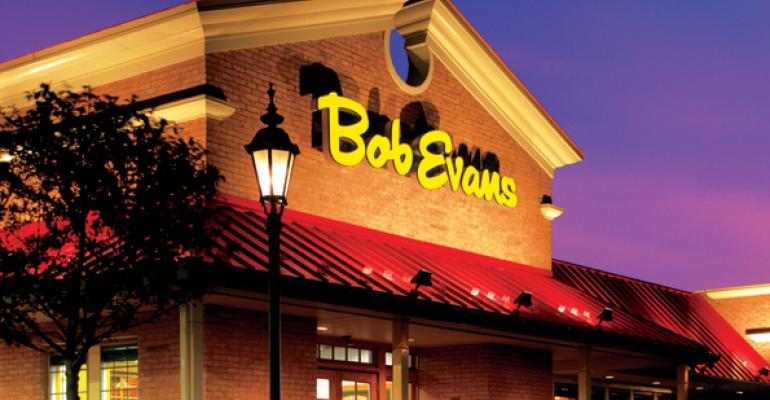Bob Evans Farms Inc. has opted against spinning off its packaged foods division “at this time,” saying Tuesday that such a sale would not yield enough of a return to benefit shareholders.
The company is also finding other areas to cut costs. Bob Evans has hired J.P. Morgan to analyze potential real estate transactions and the company’s capital structure. Additionally, Deloitte has recommended $35 million in potential cost savings through reduced general and administrative, or G&A, spending and other costs. Bob Evans expects to realize those cost savings in three years.
“Last December, the board of directors concluded that the company would benefit from new leadership and enhanced execution,” Mary Kay Haben, non-executive chairman of the board, said in a statement. “In the wake of that leadership change, the board and management are working together with a high sense of urgency to implement actions to enhance performance and create shareholder value.”
The New Albany, Ohio-based company announced the changes in an earnings report for the third quarter ended Jan. 23. The changes come less than three months after CEO Steve Davis resigned in the wake of a long proxy fight with activist investor Sandell Asset Management, which in August won four seats to the company’s 12-person board. Bob Evans’ board of directors is searching for a new CEO.
The company’s decision not to spin off its packaged foods division, BEF Foods, is somewhat surprising, since Sandell pushed for a spinoff during the proxy fight.
But Lazard, a financial advisory firm, reviewed the prospect of a sale and concluded that the company’s taxes for its packaged food business are low. If Bob Evans sold the division, it would pay taxes on the sale. The company would have to sell it at a value higher than it would likely receive on the market, the company said.
In addition, the company said annual costs and “lost synergies” if BEF Foods were spun off would be “significant,” as would be one-time costs associated with a deal.
Activist investors also recommended analyzing the company’s real estate. J.P. Morgan is currently evaluating various alternatives for Bob Evans’ real estate. Options include a sale-leaseback, or spinning the assets off into a real estate investment trust.
Meanwhile, Deloitte said Bob Evans could make $35 million in cost cuts to the business within three years. The company said it has created an “enterprise-wide efficiency team” to find other savings opportunities. It is uncertain yet what those cost cuts would entail.
Bob Evans’ same-store sales rose 3.8 percent in the third quarter, including a 5.2-percent increase in January. Net sales for the company rose 5 percent in the third quarter, to $357.2 million. Net income fell slightly, but it increased slightly on a per-share basis, to $5.9 million, or 25 cents per share, from $6.2 million, or 24 cents per share the previous year.
Bob Evans Restaurants’ reported a $2 million operating loss in the quarter, falling from an operating income of $6.6 million the previous year. The company attributed the loss in large part to $3.9 million in higher food costs, due to more discounting, menu mix changes, more off-premise sales and higher commodity costs.
The company also said labor costs at the restaurants were $2 million higher due to greater health care costs and wage rates. Increased marketing and utility rates cost the company another $1.3 million.
Bob Evans lowered its expected earnings range for the year to $1.40 to $1.60 per share, from $1.90 to $2.10 per share. The company’s stock fell 17 percent in after-hours trading Tuesday.
“Lowering guidance is necessary as a result of the underperformance of our restaurant business in the third quarter, as well as the expectation that the initiatives being implemented beginning in the fourth quarter will take some time to be fully reflected in improved operating results,” chief financial officer Mark Hood said in a statement.
Contact Jonathan Maze at [email protected].
Follow him on Twitter: @jonathanmaze





